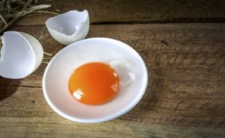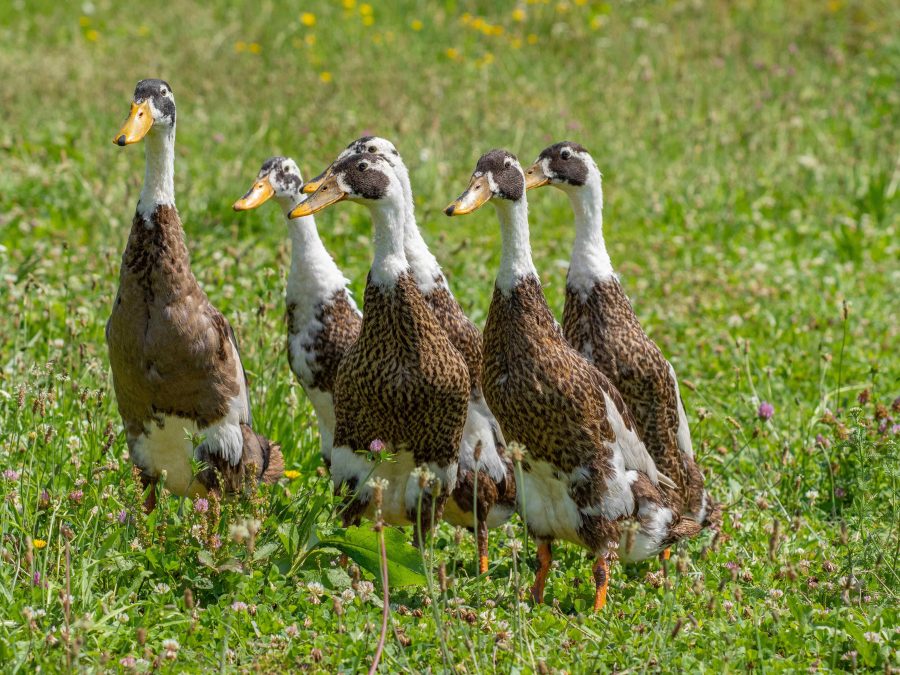Liz Fairbrother flies the flag for waterfowl and explains why, with the right care, ducks can make the most egg-cellent layers…
Back in the early twentieth century, ducks were far more valued for their egg-laying abilities than they are today. In fact, compared with the best-laying hens of that time, some ducks exceeded the number of eggs laid in hen trials and many equalled or nearly equalled their egg production.
The best layers come from the lightweight duck breeds and include the Khaki Campbell and the Abacot Ranger plus of course the breed from whom these two high layers originated, the Indian Runner duck. These breeds can lay from 200 to 300 eggs a year in exceptional cases. Other duck breeds also lay well such as the Silver Appleyard and many breeds will average 100 eggs or so in a year.
Feeding for extra eggs
Although we no longer have the record of laying trials and the strains of laying ducks we used to have, one advantage that we have over our predecessors is feed. Yet still people do not take advantage of these improvements in feed.
One of the frequently asked questions for both ducks and hens is, “my birds have reached the point of lay time, but they are not laying” followed swiftly by either “my birds are laying poorly formed, soft-shelled or small eggs”.
Assuming that these birds come from a laying strain and are a breed/ hybrid with laying performance, then apart from poor health, the only other common cause can be unbalanced or inadequate nutrition. For some reason, people still persist in thinking that laying birds can live on scraps because they have a mistaken impression that they did this during the Second World War. Wrong. Poultry keepers in wartime were very careful with nutrition and small flock owners had the benefit of Ministry advice. Regard veg garden waste as a treat not as a primary source of nutrition.
For high-laying birds of any sort and in this case ducks, the job of the poultry keeper is to provide the conditions for them to lay the highest number of potential eggs, in safety and comfort with optimum nutrition and clean water.
- Feed for laying – a balanced ration of pellets in the morning and a tip-top grain in the afternoon.
- Provide somewhere for them to lay – they are not good like hens and prefer to choose their own spot but a good thick, clean bed in their house will normally encourage them and keep the eggs clean.
- Grit for their gizzard.
- Plenty of clean water for drinking, splashing, and bathing.
- Ensure access to free range is safe from predators but if not, move the pen and provide green stuff and growing grass.
- Row bags.
- Collect eggs every day and more often if possible, keeping good records.
 What is a duck egg?
What is a duck egg?
Typically, a duck egg will weigh around 80-95g though it varies according to the breed. But this makes it bigger than a hen’s egg where a very large egg weighs around 70g. The shell can be white, buff, green or blue and sometimes there are variations within the same breed. Get to know which duck lays which egg. When you crack them open the yolk will be a very deep yellow. The duck egg contains more fat than a hen’s egg which makes it a perfect choice for baking and many professional chefs choose duck eggs over hen eggs for this purpose. The resulting cake seems to be a lovely yellow colour. They taste richer and creamier than hen’s eggs but if eaten boiled, they need to be cooked through and it can take several minutes to cook a large duck egg thoroughly.
Safe storage
Ducks are inherently messy creatures, but it is important to maintain clean conditions where they lay their eggs. This will mean constantly adding fresh bedding and removing soiled litter and droppings.
They lay later in the morning so sometime between 8-10 am typically. Be ready to collect the eggs as soon as possible after that. Ducks often lay anywhere which could be at the edge of the pond or the middle of the yard. Discard these eggs if they are dirty or have become immersed in puddles. You can clean eggs but remember that the eggshell is porous – it has to be to take in moisture for hatching. Duck eggshells are more porous than hen eggs. If they are dirty and you wash them there is a danger that the dirt on the outside will be taken into the egg in microscopic quantities. Use blood heat water if you have to wash to close the pores and invest in a suitable egg wash. Otherwise, choose clean eggs for consumption.
Store all eggs point down in a cool but chilled place out of direct sunlight. You will get such a lot of eggs from your Runners or Campbells to name just a couple of breeds, that you will need to be very strict about rotation. If you have too many then give eggs to friends (with suitable cooking instructions), sell them, or take up baking as you will be inundated with duck eggs. (It’s quite legal to sell ungraded duck eggs but all the usual ‘fit for purpose’ food rules apply so be strict that they are not old or rotten).
To receive regular copies of The Country Smallholder magazine featuring more articles like this, subscribe here.
For FREE updates from the world of smallholding, sign up for The Country Smallholder newsletter here.








